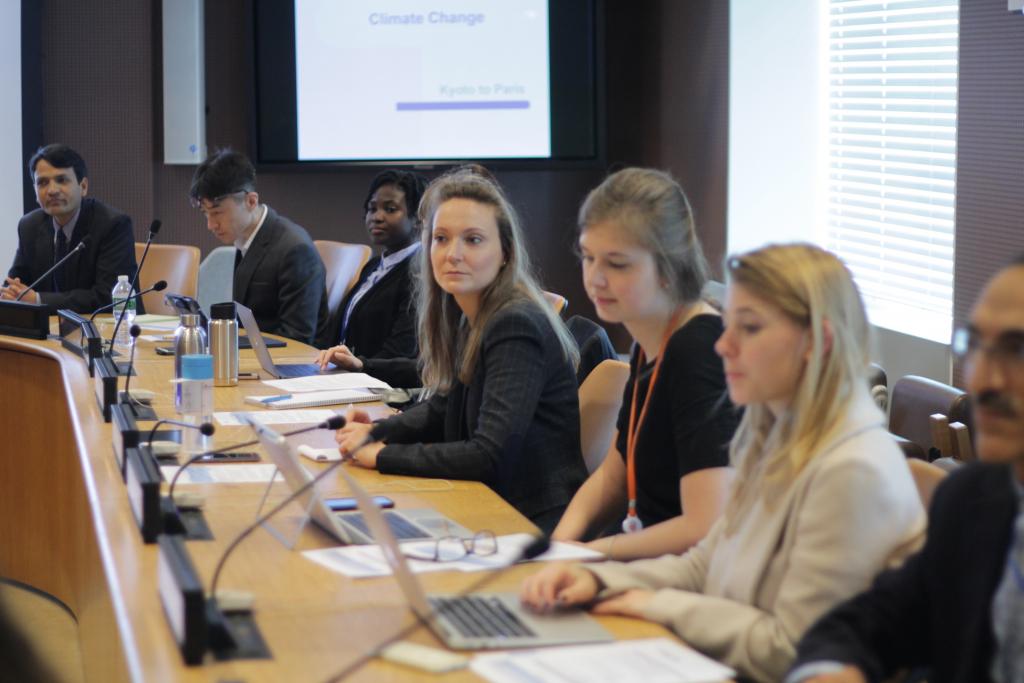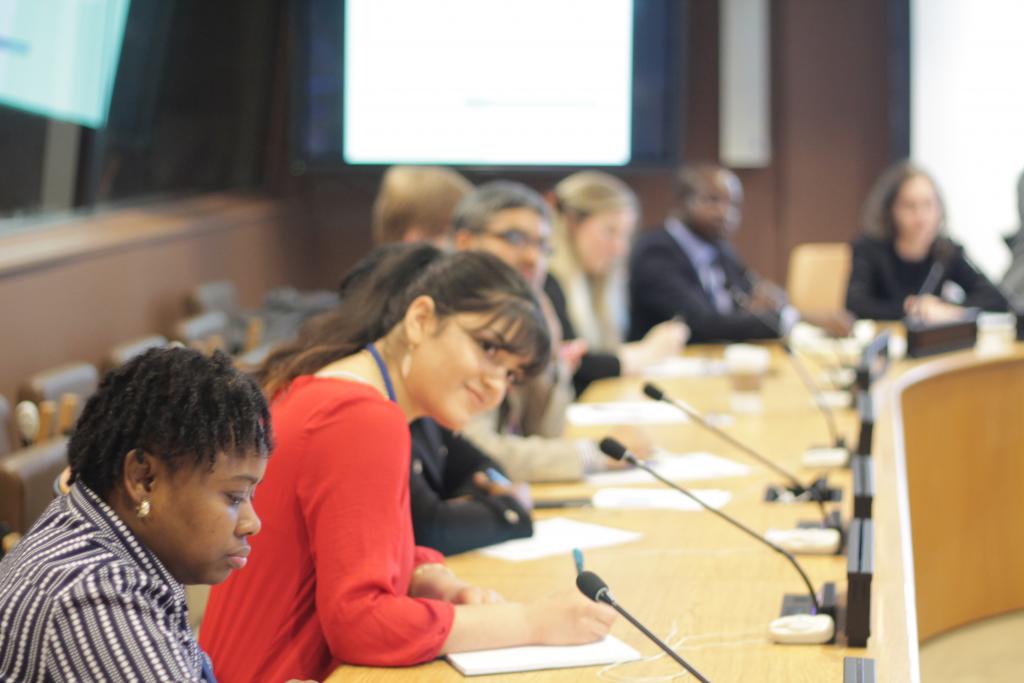UNITAR Organizes Course on Climate Change for Sustainable Development
 28 April 2017, New York, USA - The United Nations Institute for Training and Research (UNITAR) organized a workshop entitled “Climate Change for Sustainable and Green Development” taught by Professor Narinder Kakar, a accredited Permanent Observer to the UN for the United Nations mandated University for Peace. He also serves as Director and Adjunct Professor on UN Environmental Diplomacy Programme at the Elisabeth Haub School of Law of Pace University. The workshop began with a few opening remarks by Mr. Pelayo Alvarez who thanked Professor Kakar for all his hard work in preparation for the workshop. He gave participants a brief summary of what to expect from the workshop.
28 April 2017, New York, USA - The United Nations Institute for Training and Research (UNITAR) organized a workshop entitled “Climate Change for Sustainable and Green Development” taught by Professor Narinder Kakar, a accredited Permanent Observer to the UN for the United Nations mandated University for Peace. He also serves as Director and Adjunct Professor on UN Environmental Diplomacy Programme at the Elisabeth Haub School of Law of Pace University. The workshop began with a few opening remarks by Mr. Pelayo Alvarez who thanked Professor Kakar for all his hard work in preparation for the workshop. He gave participants a brief summary of what to expect from the workshop.
Participants were taught the road from Kyoto Protocol to how, in December 2015, countries adopted the new historic Paris Agreement on climate change. 195 Parties to the UN Framework Convention on Climate Change (UNFCCC) pledged to curb emissions, strengthen resilience and joined to take common climate action. This followed two weeks of negotiations  at the United Nations climate change conference (COP21).
at the United Nations climate change conference (COP21).
During the session, participants were explained all the crucial areas that were essential for a landmark conclusion under the new commitment, which are: mitigation – reducing emissions fast enough to achieve the temperature goal; a transparency system and global stock-take – accounting for climate action; adaptation – strengthening ability of countries to deal with climate impacts; loss and damage – strengthening ability to recover from climate impacts; and support – including finance, for nations to build clean, resilient futures.
During the lecture, the main elements of the agreement made in Paris were discussed: what impact this new agreement will have in the achievement of the SDGs; what challenges rise ahead for the implementation of the new climate change commitments; and what efforts do countries have to make in order to mitigate and adapt climate change  effects.
effects.
By the end of this session participants were able to identify the impact of the climate deal and its meaning for the world, reflect on the necessary efforts countries need to take to achieve the commitments, deliberate on the financial frameworks needed to implement the agreement in develop and developing countries; and analyze the importance of this agreement for the achievement of the rest of the goals in the 2030 Agenda for Sustainable Development.
Photo1: Professor Narinder Kakar (centre right) and Mr. Pelayo Alvarez (centre left)
Photo 2: Participants
Photo 3: Participants

